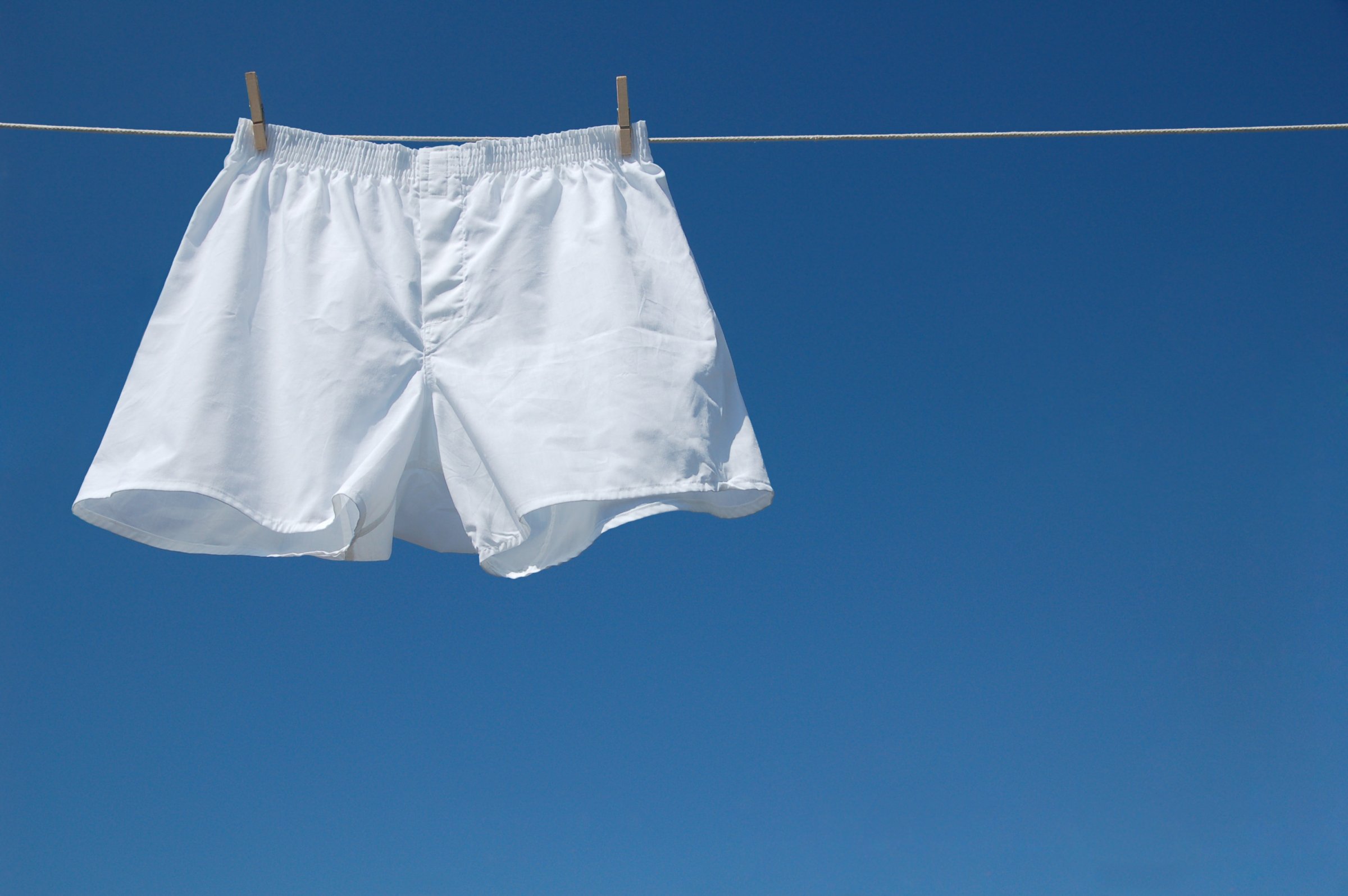
Boxers or briefs? Researchers from the Harvard T.H. Chan School of Public Health have new findings that may help settle the debate.
Men who wear boxers tend to have higher sperm counts and better quality sperm than men who wear tighter underwear, according to a study published Wednesday in the journal Human Reproduction. That finding may warrant a wardrobe change among men actively looking to father a child, says study co-author Jorge Chavarro, an associate professor of nutrition, epidemiology and medicine at Harvard.
“It will definitely not harm anyone, and it will probably help the men who are likely to benefit from a small boost in their sperm counts,” Chavarro says. Based on the typical cycle of sperm production, he estimates it would take about three months of wearing boxers, after a period of wearing tighter options, to see sperm levels increase.
The study was based on data from 656 men who were part of couples seeking infertility treatment at Massachusetts General Hospital between 2000 and 2017. The men answered questions about their lifestyle habits, including the type of underwear they typically wore, and provided semen samples for analysis. (Some also provided blood samples for hormone testing.) The researchers then compared the results of semen and blood analyses with lifestyle survey responses.
The 53% of men who reported typically wearing boxers had roughly 25% higher sperm concentrations, 17% higher total sperm counts and 33% higher motile sperm counts than men who wore other types of undergarments, according to the study. The most significant differences were observed among men who favored boxers and those who chose briefs or jockeys, likely because tighter underwear styles have been shown to increase scrotal temperature, a known hindrance to sperm production.
“The differences in temperature are not huge,” Chavarro says, “but even small differences in temperature can make an enormous impact on sperm production.”
The researchers did not find an association between underwear choice and testosterone production, but they did find that men who wore tighter underwear tended to have higher levels of a hormone related to sperm production, compared to boxer-wearers. This suggests that the brain may be trying to compensate for decreases in sperm count, Chavarro says.
“If there were not compensation, their sperm production would be even lower,” Chavarro explains. “But that compensation is not enough, and therefore they still have lower sperm counts.”
Because the study looked at men who were part of couples seeking infertility treatment, Chavarro says the sample likely included a higher-than-normal percentage of men with sperm abnormalities. But he says the results held true even after accounting for these men, making the findings applicable to the general population — especially, he adds, since most men don’t know their sperm count anyway.
“Is [a 25% difference] a lot or a little? It depends where you start from,” Chavarro says. “If you happen to be within the normal range…it shouldn’t make a difference. But if you take 25% out of being on the lower end of normal, that may be problematic. Since the majority of men do not know what their starting values are, it probably makes sense to make these types of lifestyle changes when you are trying to conceive.”
More Must-Reads from TIME
- Cybersecurity Experts Are Sounding the Alarm on DOGE
- Meet the 2025 Women of the Year
- The Harsh Truth About Disability Inclusion
- Why Do More Young Adults Have Cancer?
- Colman Domingo Leads With Radical Love
- How to Get Better at Doing Things Alone
- Michelle Zauner Stares Down the Darkness
Write to Jamie Ducharme at jamie.ducharme@time.com